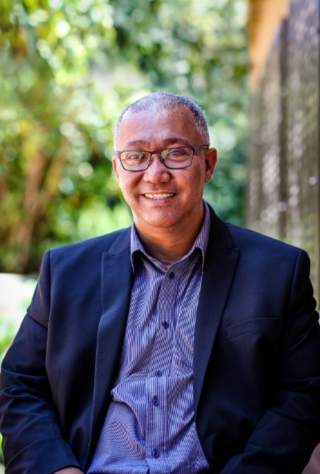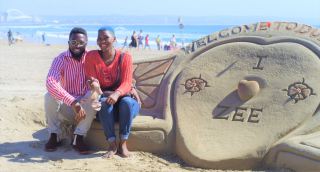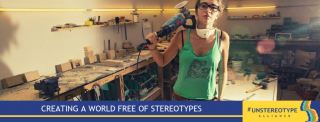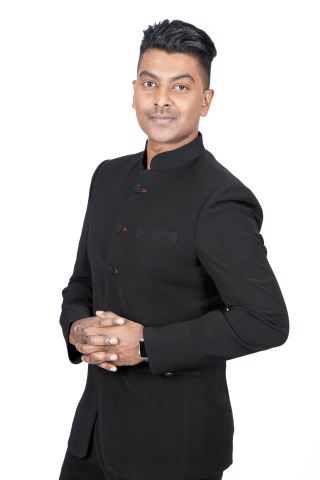Priority vaccination plea to save lives
Risk of death rather than mortality rates should be the criteria that secures priority vaccination argues the QuadPara Association of South Africa (QASA). The organisation has made a plea to the Department of Health to include quadriplegics and paraplegics in the second round of the vaccine roll out. The organisations hopes this will prevent deaths among its members and ensure no one is left behind.
“Many quadriplegics and paraplegics are at a higher risk of contracting the COVID-19 virus,” explains Raven Benny, QASA COO. “By pushing their wheelchairs, catheterising or accepting assistance from their carer, they are placed in high-risk situations.
“For most, social distancing from their caregiver, family or friends are impossible as they need assistance with daily, essential activities. A vaccination might not prevent them from contracting the Coronavirus, but it can prevent a visit to the hospital.”
Many quadriplegics and paraplegics are at an increased risk of falling severely ill and hospitalisation when contracting COVID-19. Due to lifestyle factors, like a sedentary routine, many in the community have co-morbidities like diabetes or high blood pressure. In addition, pressure sores (an open wound) and urinary tract infections are common and put strain on an already compromised immune system.
Aside from the impact on limbs, a spinal cord injury plays havoc on the immune systems and nervous systems of quadriplegics and paraplegics. The immune system is slowed, which gives the virus more opportunity to spread.
“We want to keep our members out of hospital as we are very much aware that, unfortunately, they are not always considered a priority,” Benny continues. “In times of disaster, doctors will do what is best for the most, which might mean denying a high-risk patient access to a ventilator to help others.
“We respect the medical practices that prioritise saving as many people as possible. Instead, we are calling on the Department of Health to save lives. They have the resources to make sure our members are never placed in a situation where a doctor needs to decide between saving them and another with a strong immune system. We need to be vaccinated.”
QASA wrote to the Department twice. After the first letter, the Department enquired about the mortality rate among members. Aside from the limited information available regarding deaths, QASA argues that there is sufficient reasons to vaccinate the community.
“Are we going to be denied because there haven’t been enough deaths? How many should die before we are considered vulnerable? We call on the Department of Health to put risk of death as the highest priority rather than existing mortality rates,” says Benny.
“Afterall, are they in the business of saving lives or counting corpses?” he concludes.
-- ENDS --
Notes for the Editor:
For more questions, concerns or comments:
Raven Benny, QASA COO
This email address is being protected from spambots. You need JavaScript enabled to view it.
031 767 0352
Mariska Morris, Communications officer
This email address is being protected from spambots. You need JavaScript enabled to view it. OR This email address is being protected from spambots. You need JavaScript enabled to view it.
084 788 8399
Read more on the vulnerability of quadriplegics and paraplegics:
Christopher & Dana Reeve Foundation, 2021. Christopher & Dana Reeve Foundation. [Online] Available at: https://www.christopherreeve.org/living-with-paralysis/health/secondary-conditions/covid-19-and-spinal-cord-injury[Accessed 21 April 2021].
Calvo, E. et al., 2020. Why Does COVID-19 Affect Patients with Spinal Cord Injury Milder? A Case-Control Study: Results from Two Observational Cohorts. Journal of Personalized Medicine, 10(182).Louw, G., 2020.
Choice. A matter of ethics.. Rolling Inspiration, Issue 3, pp. 24-26.Stillman, M. D. et al., 2020.
COVID-19 and spinal cord injury and disease: results of an international survey. Spinal Cord Series and Cases, 6(21).
Durban movie, Trafficked - Africa, Recognized in American Global Film Competition
(Durban, South Africa) – Jato Ehijator, Film Director at Arts Lens Studios, has won a prestigious Award of Recognition from The Accolade Global Film Competition in the United States of America for a movie filmed in Durban. The award was given for Jato’s exciting feature film, Trafficked—Africa, which tells the story of a South African journalist who stops at nothing, including putting herself in harm's way, to halt a trafficking ring that has been acting with impunity. Trafficked—Africa features a fast-paced, dynamic story line that highlights many of the social injustices in Africa.
“Trafficked—Africa is a platform to share Africa with the world” says the award-winning Director Jato Ehijator. “This includes not only the diverse beauty inherent within the people, culture, and environment of our continent; but also, the often-harsh realities of life in Africa.” He goes on to say, that “It is a true honor to receive an Accolade Award.” The film was recognized not only within the feature film category; but also as a film focused on Liberation and Social Justice. Additionally, Trafficked—Africa received an Award of Recognition for the original song Vuya Africa by Phumzile Mseleku.
The Accolade Global Film Competition recognizes film, television, videography and new media professionals who demonstrate exceptional achievement in craft and creativity, and those who produce standout entertainment or contribute to profound social change. Entries are judged by highly qualified professionals in the film and television industry. Information about the Accolade and a list of recent winners can be found at www.accoladecompetition.org. In winning an Accolade, Jato Ehijator, joins the ranks of other high-profile winners of this internationally respected award including the Oscar winning production of The Lady in Number Six by Malcolm Clarke, the very talented Dave Bossert of Disney for his short documentary, The Tunes Behind The Toons, Hollywood industry veteran Ron Howard for When You Find Me and Highwire Films Australia for their popular ABC TV series twentysomething.
Rick Prickett, who chairs The Accolade Global Film Competition, had this to say about Jato and latest winners, “The Accolade is not an easy award to win. Entries are received from around the world from powerhouse companies to remarkable new talent. The Accolade helps set the standard for craft and creativity. The judges were pleased with the exceptional high quality of entries. The goal of The Accolade is to help winners achieve the recognition they deserve.”
In October, Trafficked—Africa will feature at multiple film festivals locally and globally. This includes the Knysna Film Festival in South Africa as well as the Baltimore International Black Film Festival and Collected Voices in America. More information about the film can be found at WWW.TraffickedAfricaMovie.COM as well as on Facebook and Instagram @TraffickedAfrica.
A New Attitude: UnStereotyping Advertising: Men should feel powerfully emboldened to be counted as feminists
As the Women’s Decade 2010-2020 of the African Union draws to a close, women the world over are standing firm in their push for gender equality – and they want men to walk and work with them, to change perceptions of how women are viewed, and implement changes right where they are. This is at the very core of the United Nations HeForShe campaign www.heforshe.org – a place where men can feel powerfully emboldened to be part of the movement and the solution.
The strides governments are making are laudable, says Anne Githuku-Shongwe, Representative at the United Nations Women South Africa Multi-Country Office. However, the real work of gender equality has to continually happen in our communities, in our thinking, in our advertising and our perceptions of women. “That’s what the United Nations HeForShe campaign is all about,” she says. “Taking personal responsibility and change that will cascade into thought and community change.” “With the advertising industry, we’ve created the Unstereotype Alliance, and we’re really challenging private companies who spend billions on advertising to make sure that every single advert that goes out does not stereotype or reinforce images of women as weak or as sexual objects, but actually promotes the image of the future that we really want, which is one where gender equality thrives,” explains Githuku-Shongwe.
The Unstereotype Alliance is a thought and action platform which uses advertising as a force for good to drive positive change. It seeks to eradicate harmful gender-based stereotypes in all media and advertising content. Convened by UN Women, the Unstereotype Alliance contributes to empowering women in all their diversity (including race, class, age, ability, ethnicity, religion, sexuality, language and education) and addressing harmful masculinities to help create a gender equal world.
The Loeries, the globally recognised awards for the advertising and communications industry across Africa and the Middle East, are Ally Members the Unstereotype Alliance. One aim is to engage with communications students through a dedicated Unstereotype Alliance and HeForShe Facebook Challenge http://bit.ly/2QLhbFL. “We really want students to engage themselves on the issue of stereotyping. If we can begin to impact on students who themselves are moving into this creative industry that shapes how we believe men and women should be in society, if we can start changing that, and every billboard that comes up, every ad that is on the table, imagine what that would do? A strong woman with a strong man, positive families. These are the images we want portrayed. And just one powerful ad can make such a difference.” “This is the kind of conversation that we want to have at Loeries Creative Week in August this year, with men who are not ashamed to promote feminism, and who can stand and be counted as a feminist.
We’ve got to impact everywhere there are influencers. Creatives are influencers, so if we can influence the influencers to influence the world, then we’re really influencing.” Anne Githuku-Shongwe explains that “in much of Africa and the Middle East, gender-based violence is normalised. It actually should be considered a state of emergency, the way you would deal with a cyclone or other disaster, because really there is a serious issue here. Rape in particular, and sexual violence, is prevalent in many countries, and it’s an area that really has to be dealt with because women will make progress in their education and in their economic advancements, but then they get into a situation of rape or some form of violence from a loved one, and all of that reverses,” she laments.
Gender equality has to go far beyond just the number of women who sit in high positions, it has to translate to having actual impact on women’s lives. Economically, governments spend billions on procurements every year. “Barely one percent of that goes to towards women-owned businesses. Barely! And that’s a global average,” says Githuku-Shongwe. “Just imagine if 50 percent of government procurement went to women-owned businesses? That would transform the world, because we know that women-owned businesses employ more people and impact on more people just because automatically they are households.
So the economic upliftment of women is not something to do just because it’s cute, it actually makes transformational economic sense. It’s good business actually. And it starts with changing the way women are viewed and treated.” Anne Githuku-Shongwe will be speaking at the Unstereotype Alliance Masterclass as part of Loeries Creative Week, 22-25 August. More info can be found at Loeries.com.
Major Partners: DStv Media Sales, Gearhouse
Category Partners: AB InBev, Barron, Brand South Africa, Facebook, Gagasi FM, Google, JCDecaux, Nando’s, Tsogo Sun, Vodacom, Woolworths
Additional Partners and Official Suppliers: AAA School of Advertising, Antalis South Africa, Aon South Africa, Backsberg, BEE Online, First Source, Fresh RSVP Guest Logistics, Funk Productions, Gallo Images, Grid Worldwide, Hetzner, Mama Creative, Newsclip, Paygate, Rocketseed, Shared Value Initiative, Shift Social Development, Vega School, VQI Communications Nigeria
Endorsed by: Association of Communication and Design, Brand Council South Africa, Commercial Producers Association, Creative Circle, EXCA, IAB, South African Institute of Architects, IID
Official Media Partners Bizcommunity.com, Book of Swag, Brand Communicator Nigeria, Business Insider by Pulse, Campaign Middle East, Film & Event Media, Modern Marketing,The Redzone. Twitter: @loeries Instagram: Loerieawards Facebook: The Loeries
Distributed on behalf of the Loeries by: Riana Greenblo Communications Date: June 27 2019 For more information, interview requests or high-res images, please contact: Riana Greenblo on 011 3256006; 0825675159 or This email address is being protected from spambots. You need JavaScript enabled to view it. McGloughlin on 0113256006 or This email address is being protected from spambots. You need JavaScript enabled to view it. (mornings only)
Muslim women’s rights rulings: Are we still in denial?
By Devan Moonsamy – CEO The ICHAF Training Institute
About a week ago, the Western Cape High Court made a ruling which provides legal protection to Muslim women and their children in cases of divorce. The Weekend Argus reported, ‘The Western Cape High Court judgment ordering Muslim marriages to be legally recognised speaks directly to “a very patriarchal Muslim society”, which has always benefited men and left women with nothing after divorce.’ The Muslim Judicial Council welcomed the decision, which it seems should have been made long ago.
It is not the only recent legal development which has sought to protect women’s rights in Muslim marriages. Why should there even be a need for this? South Africa is supposed to be among the nations with the best legislation worldwide. Isn’t this already in place? Surely when we got our full Constitution in 1996 it cleared all this away?
No, it didn’t. It hasn’t solved all our problems. The High Court and the Constitutional Court still have a lot of work to do in protecting people by ensuring the correct interpretation and implementation of our laws.
This is a strong case in point when it comes to women’s rights denialists who continue to stare blank-faced at the plight of women (and other victims of discrimination too). By this I mean that some people assume women have equal rights in law – they definitely do not in all cases – and this has fixed everything. But even where everyone has equal rights in law, in practice true justice is sorely lacking.
Why do genuine victims of discrimination still get no recognition? Some women are still cast aside when their husband dies. Our laws and rulings like these are not an excuse to sit back on our laurels and turn away from the plight of others. Black people still suffer in this country because of their colour. Women still suffer because of their gender. Children, youths and the elderly still suffer because of their age.
We have to stop denying these facts. I feel so frustrated sometimes when I hear people say things like, ‘But women/black people/youths have been given everything they want.’ The real attitude behind such statements is that they have ‘lost out’ because of this. ‘We’ve given you what you want – equal rights, jobs, education, etc. – what more must we do for you?’ They think it’s because people who are facing serious challenges are just ungrateful.
Do we really think that people in subordinate positions are complaining because they have nothing better to do? If this is true, why do we still need court rulings to protect women after the death of their husband? Despite such developments, women’s struggle against patriarchal dominance continues.
We have to start seeing the truth behind excuses that people have ‘equal rights’, that the women’s liberation movement has already achieved its ends, that racism and sexism outlawed has brought a closure to the matter.
We need to keep our eyes and hearts open to the plight of anyone and be willing to see and empathise with their pain. If we don’t, injustice of all kinds will continue to eat away at our lives because ‘None of us are free until all of us are free.’
-- ENDS --
Tel: 011 262 2461 | Email: This email address is being protected from spambots. You need JavaScript enabled to view it. | Website: www.devan-moonsamy.com www.ichaftraining.co.za





